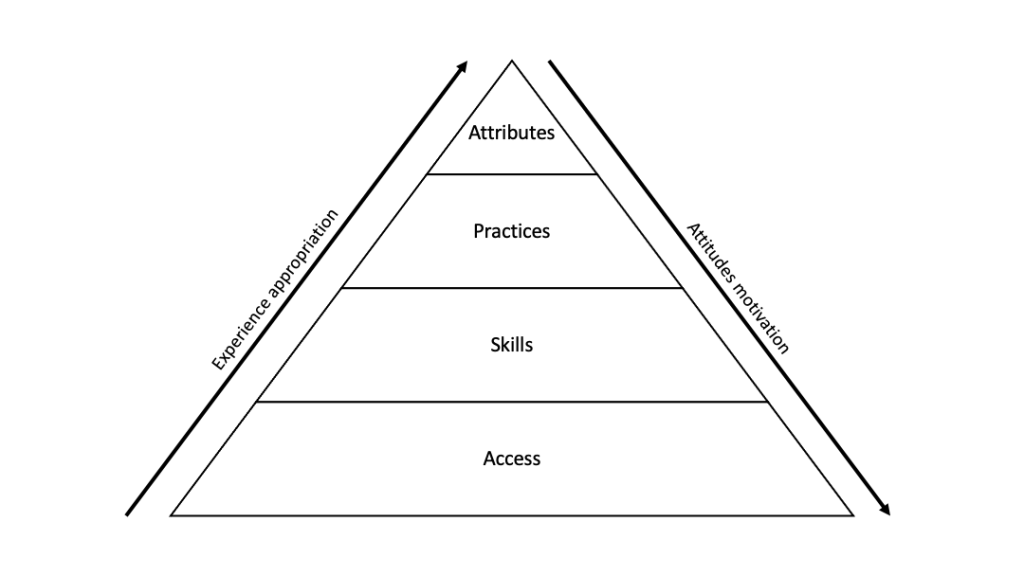I have been teaching online for some years now, so the change that we have seen during the pandemic when it comes to work and education has not been as ”dramatic” for me as for some of my colleagues, although we are all affected, one way or the other..
Previously, I have had students both on campus and online in the same course, that have been challenging due to the different ways of communicating and interacting with students during a lecture. What tools to use, how to involve the different students and make sure that everyone can follow and see the same thing. So in one way this have made it easier and more focused to develop course content/exercises that are more customized for the course environment and all activities in the course.
But, I have also experienced new (?) challenges and I guess that I can relate some of them to digital literacies. Even though I’m mainly teaching courses in programs that could be expected to have students with a developed digital literacy (e.g., digital service innovation, information security), I felt that this model was interesting to discuss.
 Beetham and Sharpe’s (2011) model of students’ digital literacies.
Beetham and Sharpe’s (2011) model of students’ digital literacies.
Beetham, H. & Sharpe, R. (2011) ‘Digital literacies workshop’, Paper presented at the JISC Learning Literacies Workshop, Birmingham [online], Available at: http://jiscdesignstudio. pbworks.com/w/page/40474566/JISC Digital Literacy Workshop materials
Especially the right hand downward arrow, that illustrates the attitudes towards technology and provides motivation to learn new practices, which lead to development of new skills and acquire access.
We have on several occasions noted that more and more students assess online education (distance learning) more in the form of a service they have the right to receive, than an education they themselves must spend time on and engage in in order to obtain digital literacy relevant to the subject and finally a grade too.
I will present a contribution later this autumn during the Utvecklingskonferensen för Sveriges ingenjörsutbildningar (”Development conference for Sweden’s engineering educations”) in which we discuss some of these challenges as well.
Lugnet, J., Ericson, Å., Wenngren, J. (2021) Hinder och möjligheter i en digital undervisningsmiljö. In Proceedings of the 8:e Utvecklingskonferensen för Sveriges ingenjörsutbildningar, Karlstad, Sweden, 24 – 25 November 2021. (In Swedish)